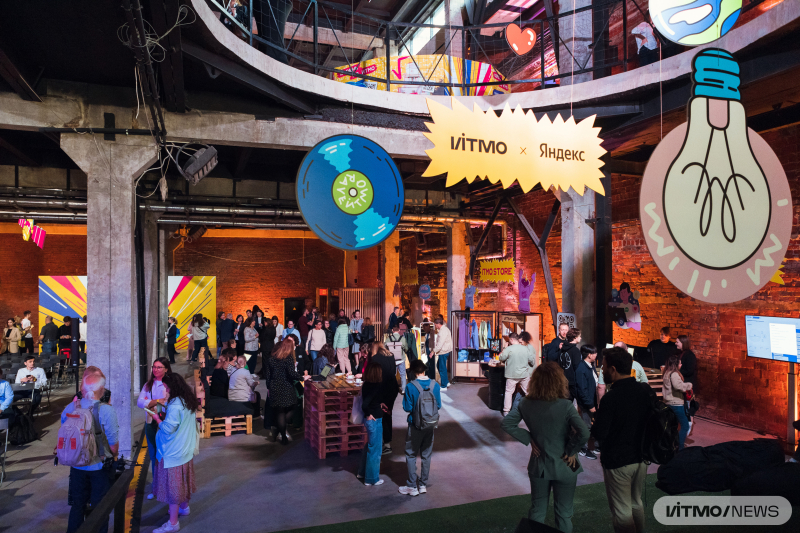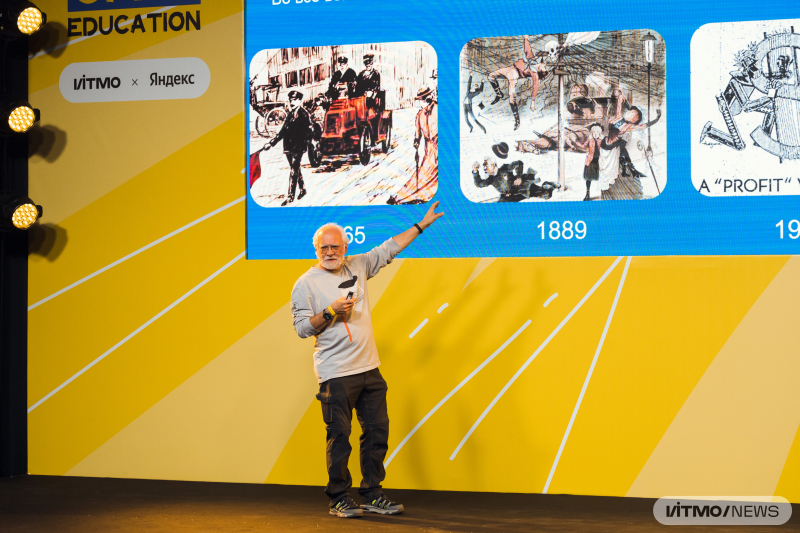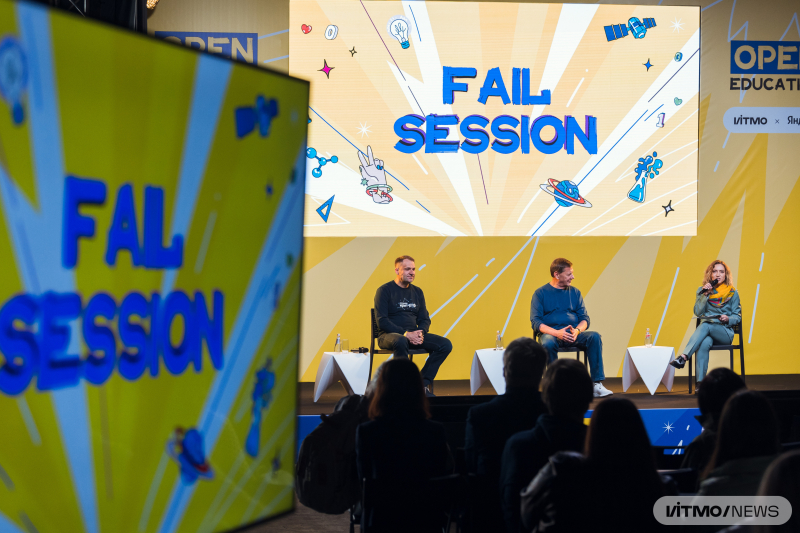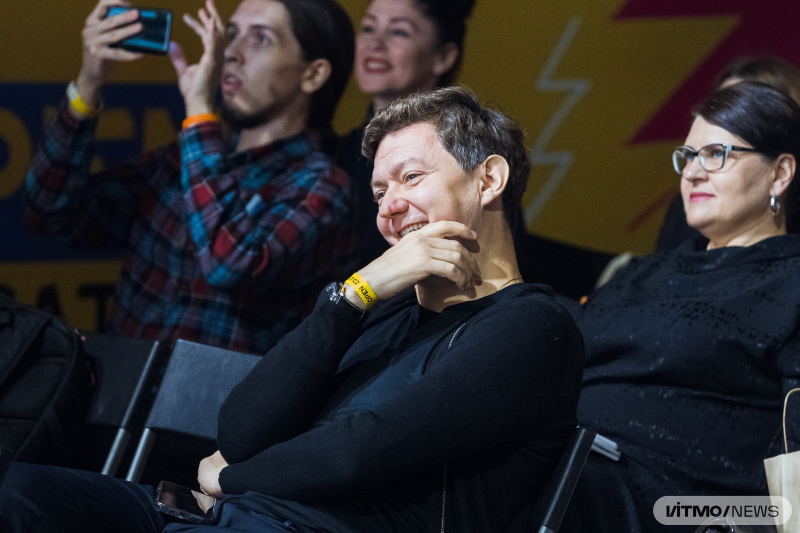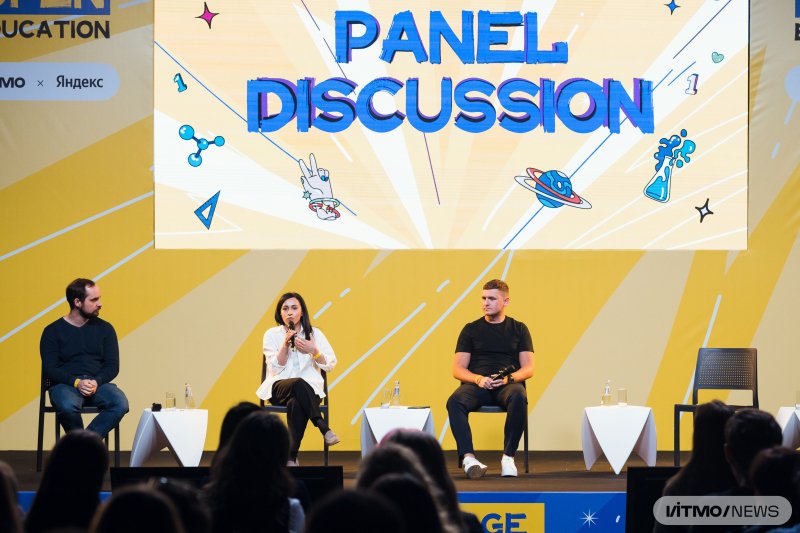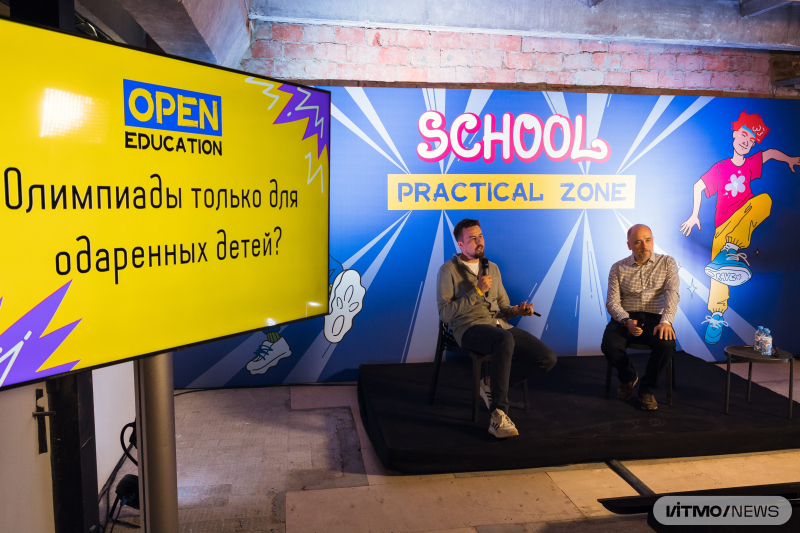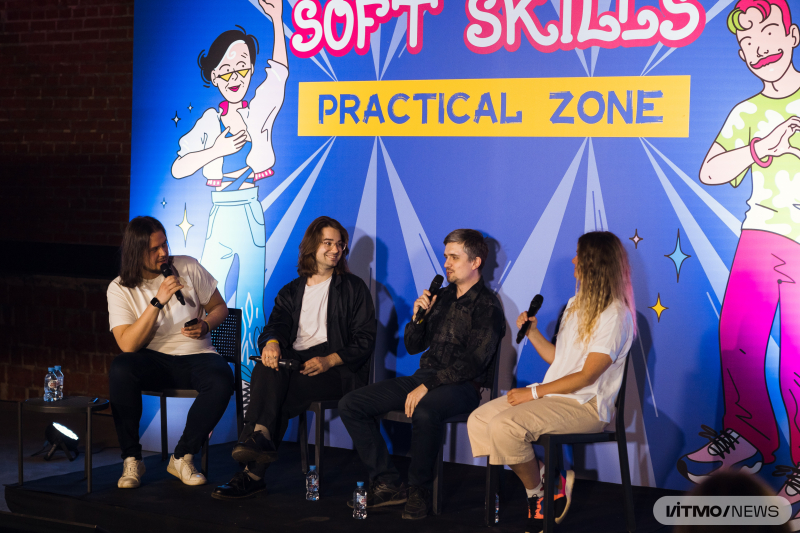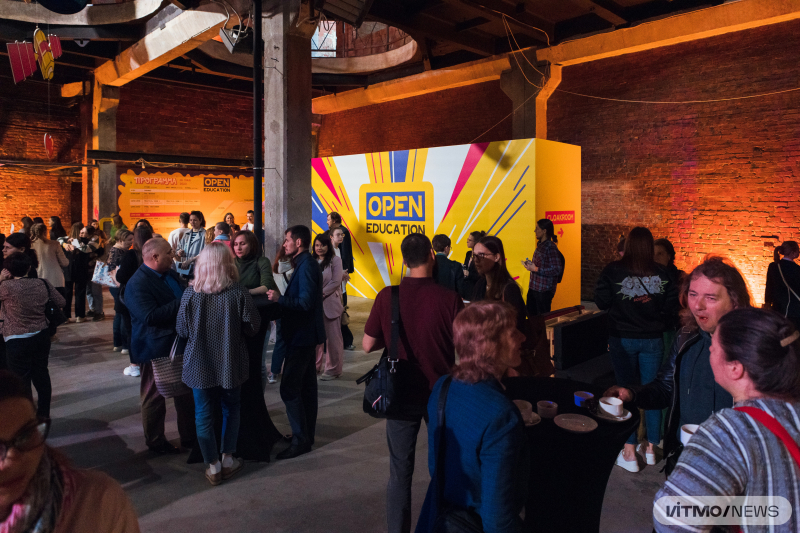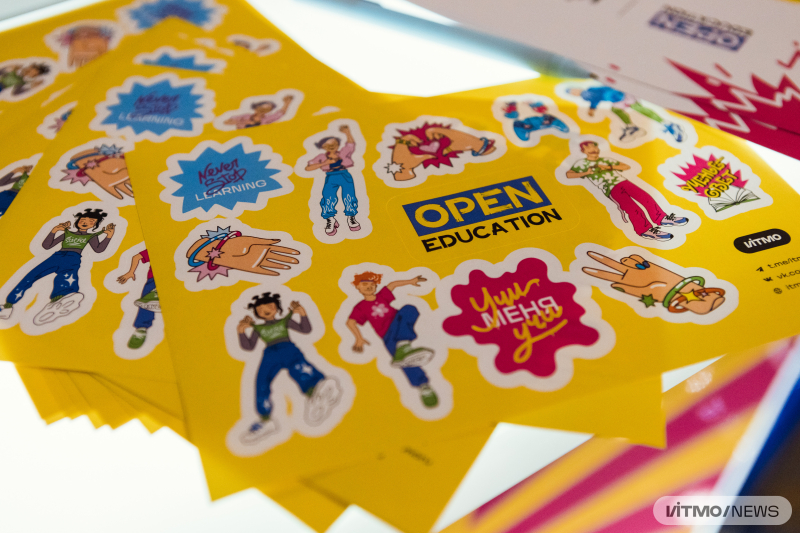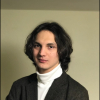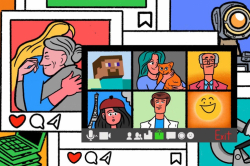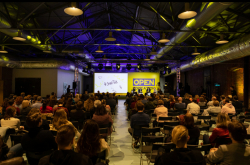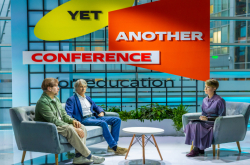In the past, the Stepan Razin Brewery had supplied beer to the court of the Russian Empire. These days, its historic facilities with their massive columns, wide arches, and picturesque brickwork serve as a technopark which is home to several co-working spaces, multiple bars, and even a cheesemaking workshop. It also hosts raves (such as Gamma, one of the world’s biggest festivals of electronic music) of all kinds, including educational ones, like ITMO’s Open Education. The conference is designed as a break from the traditional format, providing its participants with a platform that facilitates honest and open discussion of successes, failures, challenges, and prospects in education.
The conference has been held in St. Petersburg since 2021. This year’s event was organized by ITMO in collaboration with Yandex. Its participants included more than 400 university and school teachers and students, along with entrepreneurs and business representatives from Moscow, St. Petersburg, Chelyabinsk, Yekaterinburg, Astrakhan, Ulan-Ude, and Vladivostok.
“Why would a leading university want to join efforts with the biggest tech company in the country? The goal is to create a platform for discussion that would lead to new ideas and perspectives on the prospects of education. We deliberately avoid routine topics like educational standards and teaching units. At the Open Education conference, our aim is to look forward into the future. We involve not just the educators, but also members of the edtech industry, since they are the ones responsible for creating new products and technologies. This year, school teachers and students also became part of the conference. This approach, with participants from all strata of education, allows us to go past our individual experiences and have a productive discussion where all perspectives are represented,” said Daria Kozlova, ITMO’s First Vice Rector and head of its 2030 Development Strategy.
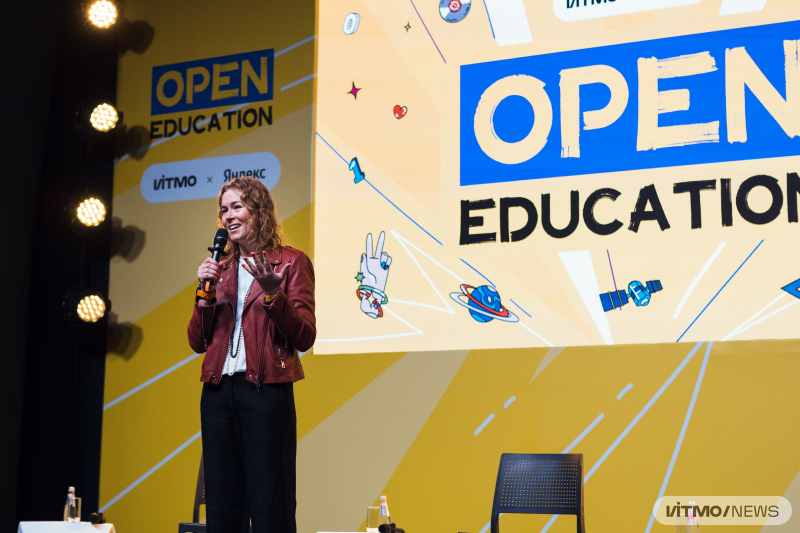
Daria Kozlova. Credit: Dmitry Grigoryev / ITMO.NEWS
This year, the conference featured a TED-like talk by Andrey Sebrant, Yandex’s marketing director, alongside several discussions about the less attractive parts of a career in education. Vladimir Vasilyev, the Rector of ITMO University, and Ilya Obabkov, head of the Institute of Radio Electronics and Information Technologies at Ural Federal University, shared stories about some of their past failures, while young scientists and entrepreneurs – laureates of the Forbes 30 Under 30 ranking – argued whether higher education is a prerequisite for success.
At the conference, nine so-called practical zones were dedicated to discussing real-life cases, with one of them geared towards working on soft skills. Several workshops for university and school teachers were also held. There, participants shared their thoughts on how to make science more appealing for students even before their graduation from school, and what role contests can play in this endeavor.
“Visiting such conferences is absolutely a must. Any event like this contributes to one’s professional growth,” said Valentina Kulyasheva and Daria Novak, IT and handicrafts teachers at St. Petersburg’s Gymnasium No. 271, who participated in one of the zones. “We are interested in helping our students grow and develop, so we found the practical zones to be the most useful. There, we talked about how to best prepare students for contests, what tools and services can help, and what contests are organized by ITMO. I learned about competitive programming, its benefits, and what a teacher should know about it in order to assist their students. We are also users of the online education platform Yandex Textbook, so we found it impossible to miss this chance to speak with its developers.”
Should we be worried about ChatGPT?
University teachers shared their experience with company representatives while discussing if students should be taught product thinking, how to create effective educational programs, and, last but not least, how to handle that pesky ChatGPT. Alexander Krainov, the director for development of artificial intelligence technologies at Yandex, said that while the emergence of such language models has already led to some turmoil, more is yet to come. Most of the participants were of the same opinion, with most of the audience raising their hands when asked if they agree that academia can no longer afford to ignore ChatGPT. They also had other questions for the experts.
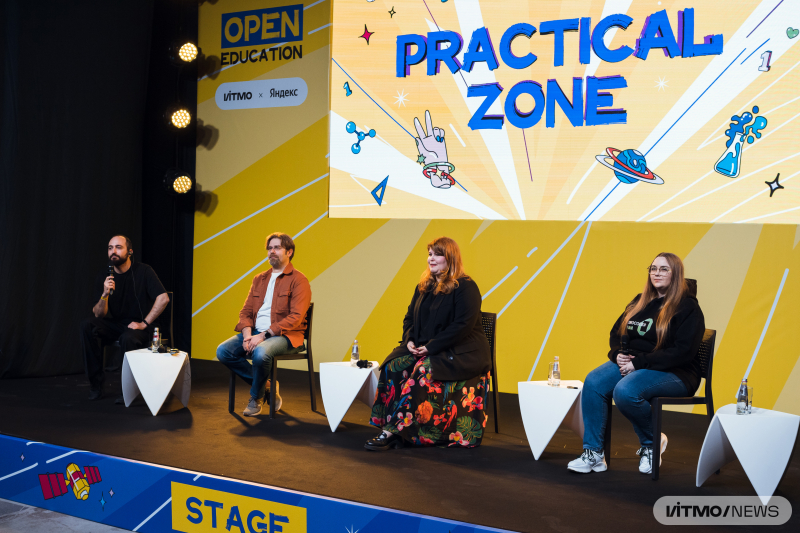
Speakers of the CoEducation AI practical zone. Alexandr Kapitonov, the dean of the Faculty of Infocommunication Technologies; Alexander Krainov, the director for development of artificial intelligence technologies at Yandex; Daria Denisova, head of ITMO’s Center for Science Communication; and Maria Razmazina, head of Zerocoder’s analytics department. Credit: Dmitry Grigoryev / ITMO.NEWS
Here are some of the questions and answers from the ITMO Open Education conference:
ChatGPT provides endless new opportunities for cheating. With some students using such tools to write their theses, is thinking for yourself no longer required?
“Such deceit was always present. The student who wrote his thesis with ChatGPT wasn’t the first to do it, he was simply the first to publicly acknowledge it,” said Alexander Krainov. “Those who cheat were always there, and they used every tool that they could get their hands on to do so. Even though now they have a new tool in their arsenal, it doesn’t drastically change anything,” agreed Alexey Romanov, an associate professor at ITMO’s Higher School of Digital Culture.
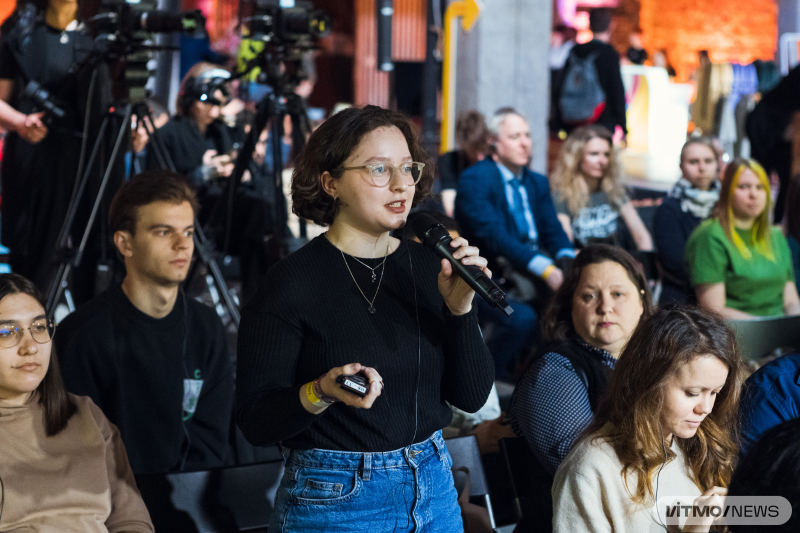
ITMO Open Education. Credit: Dmitry Grigoryev / ITMO.NEWS
How can we prevent the misuse of AI?
According to experts, there are no tools or methods that could provide a 100% assurance that a text was either generated by ChatGPT or written by a human. But that’s not really necessary: both the speakers and the audience agreed that this issue calls for a different perspective. “A lecturer’s key objective is to teach students to process information in a critical manner,” said Alexey Romanov. “ChatGPT will never be good at fact-checking,” admitted Alexander Krainov, adding that in these new circumstances, a teacher’s task is not just to relay knowledge, but to show how one can find and verify this information. He even suggested his own idea for an experiment that teachers can conduct in the classroom by themselves: take an AI-generated text and ask your students to look it over and scan for mistakes and errors.
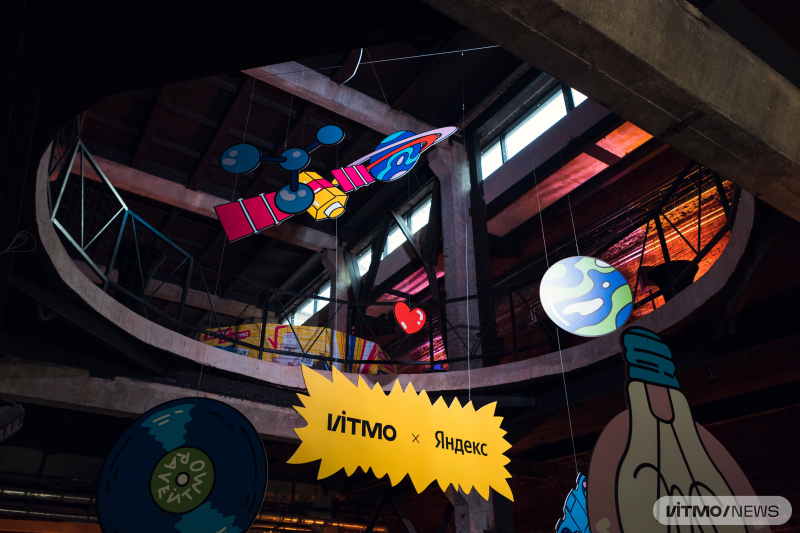
ITMO Open Education. Credit: Dmitry Grigoryev / ITMO.NEWS
So, is ChatGPT okay to use?
It is, indeed – say the experts. But it’s important to be aware of the limitations of such models and to use them properly. AI can handle routine tasks – such as finding sources or doing research. “Compiling a list of references or an introduction is a perfectly doable task for such a program. But AI can never do the pivotal parts,” said Alexandr Kapitonov, the dean of the Faculty of Infocommunication Technologies. “By the way, one of my PhD students actively uses such solutions in his work; he even does live streams in which he talks about the best ones.”
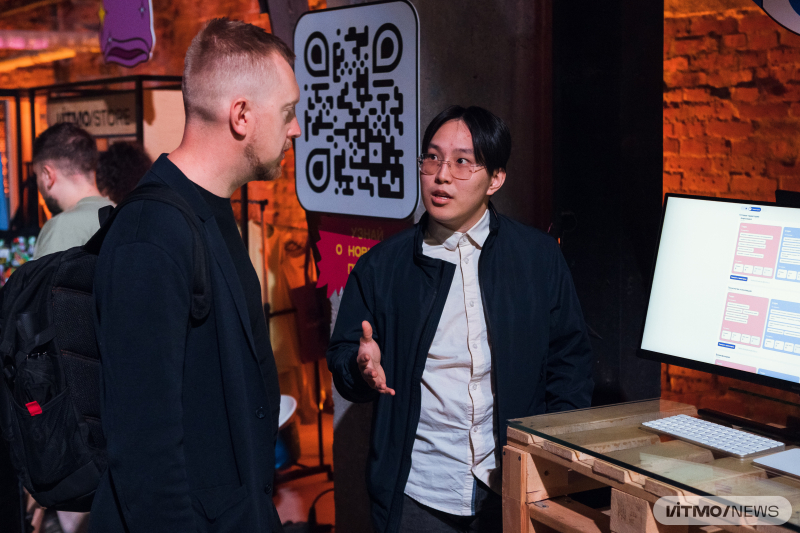
ITMO Open Education. Credit: Dmitry Grigoryev / ITMO.NEWS
What other opportunities do these technologies provide to us?
According to Daria Denisova, the head of ITMO’s Center for Science Communication, most of her students, too, use ChatGPT in their work; some, by their own admission, do this for inspiration or to find answers to silly questions that they’d be too embarrassed to ask their lecturers. Alexandr Kapitonov, for his part, noted that the latter example can be a source of growth for teachers, too: if students can use ChatGPT – or any similar model – to learn the basics, then they’ll be able to delve deeper into the subject during class.
“In any case, neural networks are useful for your personal development,” agreed Dmitry Volchek, an associate professor at ITMO’s Higher School of Digital Culture. “I don’t believe there is a reason to be afraid of technology. People have been talking about being replaced by tools since the invention of the mechanized loom. We simply need to learn to interact with technologies and use them properly.”
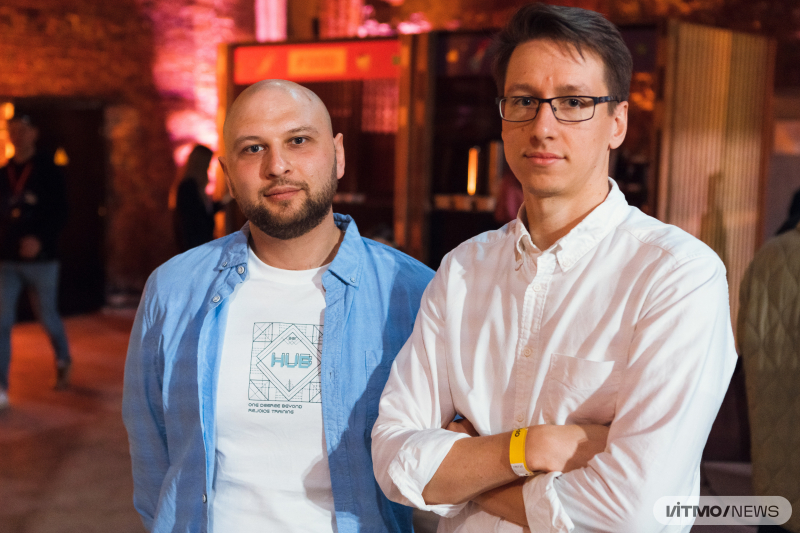
Dmitry Volchek and Alexey Romanov. Credit: Dmitry Grigoryev / ITMO.NEWS
“Everyone these days is trying to integrate AI models into their products. I believe that these systems are a perfect fit for education. For instance, we can use them to optimize routine processes and spend less time on paperwork. The development of technologies lets us show school and university students that education isn’t about sitting through boring lectures, but about learning new, exciting things,” told us another participant, Andrei Gorokhov, a Master’s student at the Moscow Institute of Physics and Technology. “I came to ITMO Open Education precisely to learn how I can use AI models in my work.”
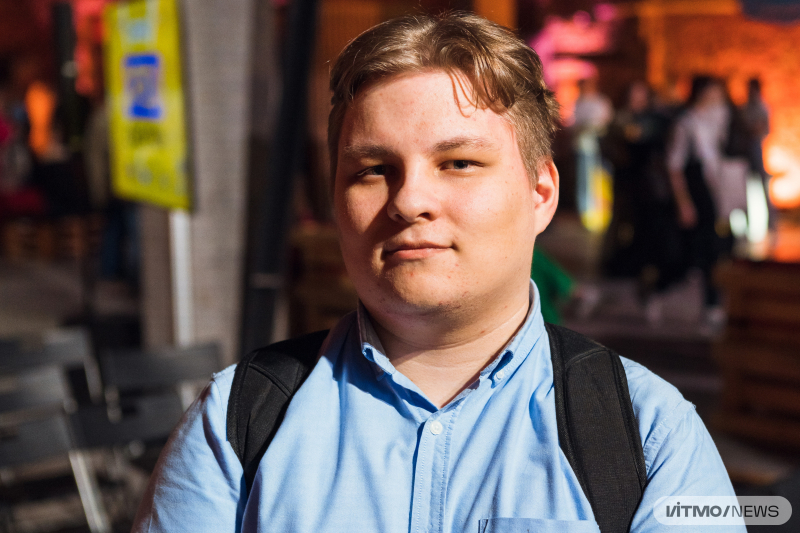
Andrei Gorokhov. Credit: Dmitry Grigoryev / ITMO.NEWS
At the end of the event, ITMO lecturers – nominees of the ITMO.EduAwards contest in the EduStars and EduLeaders tracks – presented short four-minute talks about their work and pitched their educational projects. The conference concluded with a prize ceremony: 30 members of ITMO’s academic staff were named as winners of ITMO.EduStars, while 6 teams received prizes in the ITMO.EduLeaders track. Two more participants were honored as part of EdTech of the Future, a new bonus track of the contest. The university’s top mentors, too, were recognized during the ceremony. The full list of winners can be found on the ITMO Expert Telegram channel.
ITMO.NEWS editorial office
